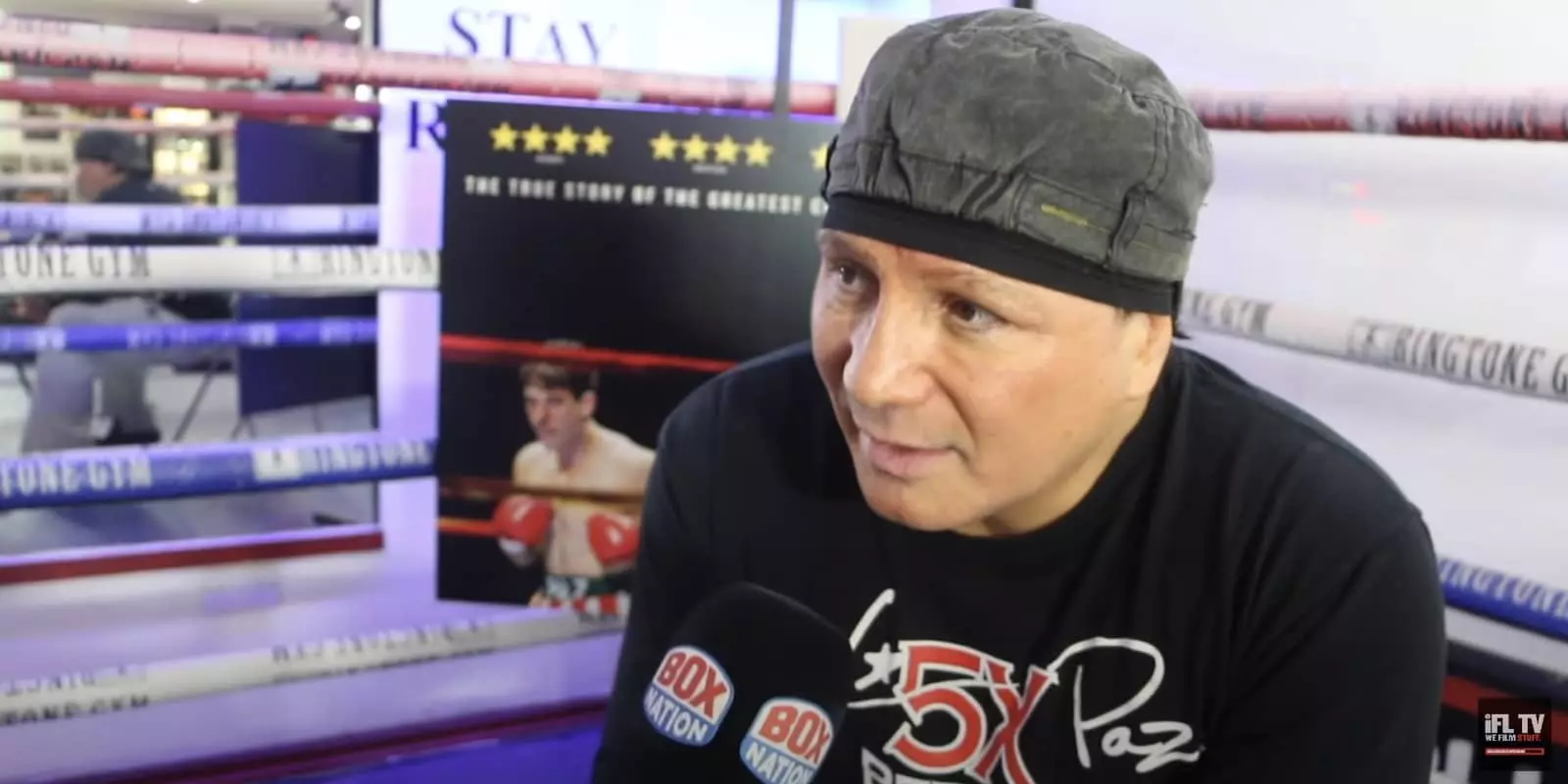In a night that celebrated boxing legends, Vinny Paz, along with Manny Pacquiao and Michael Nunn, was officially enshrined into the Hall of Fame. It was a momentous occasion filled with nostalgia, camaraderie, and recognition of their significant contributions to the sport. Celebrated as icons, these fighters embody the spirit of resilience and athletic prowess that has defined boxing for generations. However, amidst the cheers and accolades, an underlying tension emerged—Vinny Paz’s unabated animosity towards a rival, Greg Haugen, cast a shadow over an otherwise joyous event.
The Complex Tapestry of Rivalry
Vinny Paz’s career was punctuated with intense rivalries, but none quite as compelling as his tumultuous relationship with Greg Haugen. The two squared off in the ring on three separate occasions, collectively showcasing their tenacity and relentless spirits. With Paz emerging victorious twice, one might assume that time would heal wounds and alter perceptions. Yet, as he spoke post-enshrinement, it became glaringly evident that some rivalries transcend the boundaries of competition, becoming etched in the very fabric of one’s identity. Paz’s raw emotions resurfaced when he recalled not just the fights, but the feelings of contempt that had simmered for decades.
“I hate him,” Paz declared with fervent intensity, derived from a complex interplay of admiration and rivalry. For many, such unabashed hatred for a deceased opponent might seem unfathomable, but here lies the essence of competitive sports. The emotional stakes involved can shape relationships in ways that are often inexplicable. Such sentiments highlight more than mere victories and losses; they bring forth the psychological underpinnings of competition itself. In reflecting on this rivalry, Paz revealed how deeply personal and invasive the feelings generated within the squared circle can be.
A Rivalry Marred by Intensity
The narrative of Paz and Haugen goes beyond standard banter; it’s steeped in a fabric of emotionally charged moments that resonate with the very essence of combat sports. Their exchanges weren’t simply scripted events—they were visceral confrontations that left scars both physically and emotionally. Haugen remarked on Paz’s perceived arrogance, pointing out that the aftermath of their first encounter left Paz in the hospital for days. His words—“I beat the s**t out of him!”—encapsulate the animosity that existed not just in the ring, but outside of it as well.
Given that boxing is a sport driven by personal vendettas and existential stakes, it’s crucial to recognize the psychological burdens borne by fighters like Paz. The enmity he carried for Haugen can be viewed as a reflection of the broader struggles faced by athletes in dealing with their rivals. The complexities of pride, vindication, and legacy intertwine to create a rich tapestry that encompasses the life of a boxer.
The Echoes of a Fallen Rival
The death of Greg Haugen earlier in the year adds another layer of poignancy to this saga. With Haugen no longer around to contest Paz’s feelings, the one-sided nature of their rivalry takes on new significance. Despite Haugen’s absence from the physical realm, Paz’s feelings remain vividly alive, testifying to the fact that some rivalries linger long after the final bell has rung. It raises questions about closure and how fighters process loss—both of a competitor in life and in the arena.
For fans and spectators, the emotions surrounding such rivalries can evoke nostalgia—an appreciation for the savage beauty of the sport, and an understanding that rivalry can inspire greatness. It is through the lens of this tension that we grasp what truly makes boxing extraordinary: not merely the physical contests, but the emotional and psychological warfare that unfolds alongside them.
In a world that often heralds the achievements of sports icons, Paz’s raw, unrefined sentiments offer a glimpse into the deeper, unvarnished reality of what it means to be a fighter—a truth laden with both glory and grievance, pride and pain.

